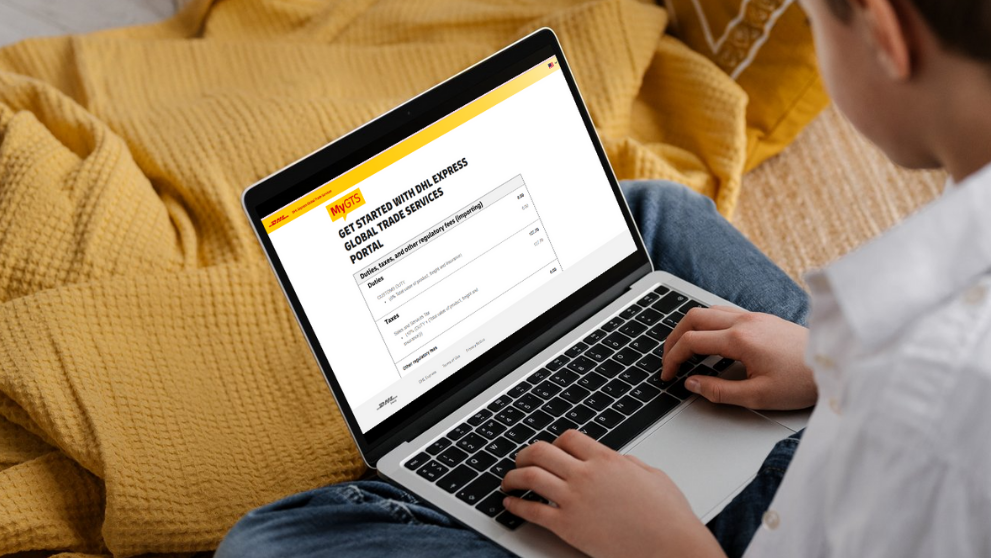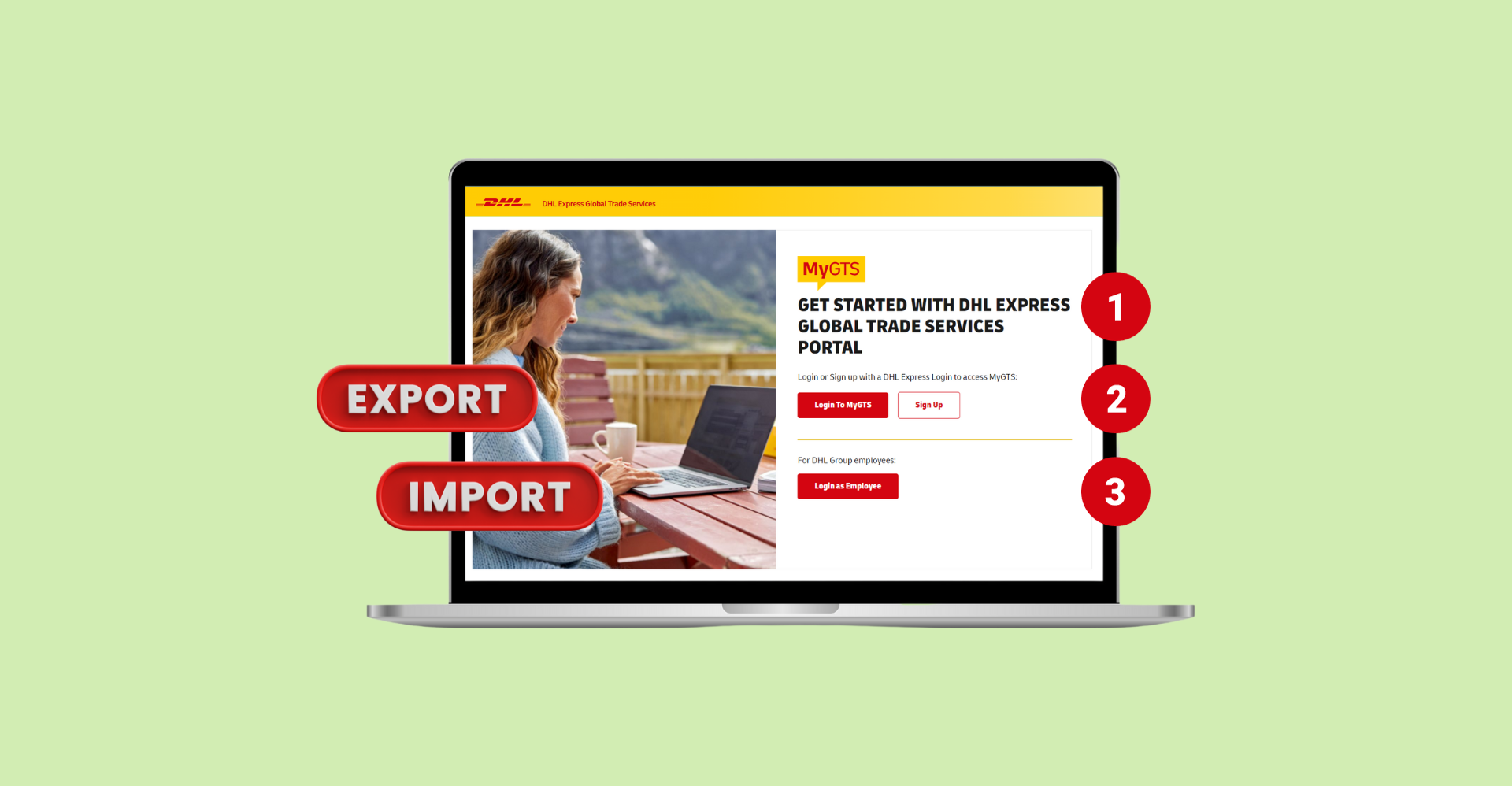
As neighboring countries within the ASEAN Free Trade Area (AFTA), Thailand and Malaysia enjoy strong trade ties that facilitate robust economic collaboration. Malaysia's exports to Thailand reached an impressive $12.87 billion in 2023, highlighting the significance of this trade relationship1.
However, if you plan to ship to Malaysia, understanding Malaysian customs regulations is vital to avoid delays and ensure cost-effective shipping. Familiarity with these regulations streamlines the logistics process and helps businesses capitalize on the benefits of proximity and shared markets.
This blog will cover key steps for seamless shipping, including customs clearance, shipping strategies and how DHL Express can streamline your shipping experience to Malaysia.
Navigating Malaysian customs
Step 1: Required documents
When shipping to Malaysia, ensuring you have the correct documentation is crucial for a smooth customs process. Here’s a list of essential documents you’ll need for international shipping:
- Commercial invoice: This document details the transaction, including buyer and seller information, product description, quantity, price, and payment terms, serving as proof of sale.
- Packing list: A packing list outlines the contents of each shipment, specifying the quantity and type of goods, and assists customs in verifying the shipment against the commercial invoice.
- Delivery letter: This document confirms the delivery details and serves as communication between the sender and recipient regarding the shipment.
- Leaflet or catalogue: While not always required, including promotional materials can help clarify the nature of the products being shipped.
- Insurance certificate: This document provides proof of insurance coverage for the shipment, safeguarding against potential loss or damage during transit.
- Bill of lading/airway bill: This is a receipt for the shipment and contains the terms of the transport contract between the shipper and carrier.
- Letter of credit: A financial document used in international trade that guarantees payment to the seller once the goods are shipped.
- Permits, licenses, and certificates: Depending on the product, you may need specific permits or certificates to comply with Malaysian customs regulations.
- Proof of fare payment: Documentation that confirms payment for shipping costs.
- Customs declaration form (customs form no. 1): This crucial form indicates the number, description of packages or crates, value, weight, quantity and type of goods, and country of origin. It must be submitted to Customs offices where the goods are imported or exported2.
You can refer to official Malaysian customs resources, such as the Royal Malaysian Customs Department website, for a comprehensive understanding of additional documentation that may be required, including any specific licenses or permits.
Step 2: Calculating Duties and Taxes
Understanding Malaysia’s tax and duties structure is crucial for Thailand exporters. Primarily, three main taxes apply to products exported to Malaysia: Import Duty, Sales Tax, and Excise Duty.
Import duty or customs duty regulates international trade and protects domestic industries. It is calculated based on either an ad valorem basis (a percentage of the goods' value) or a specific basis (a fixed sum per unit), with rates ranging from 0% to 60%, determined by the Harmonized Systems Code (HS Code).
Next, sales tax, implemented under the Sales and Service Tax (SST) system, has two categories: Taxable Goods and Low-Value Goods (LVG). The latter imposes a fixed 10% rate on online goods valued under RM500, effective January 1, 2024. And at last, excise duty targets specific products, with rates varying based on their HS code3.
In addition to these taxes, various exemptions can significantly benefit importers. De Minimis shipments, also known as Direct Release shipments, apply when the Cost, Insurance, and Freight (CIF) value of imported goods is below RM500, exempting them from duties and taxes4.
Besides this, under the ASEAN Free Trade Area (AFTA), importers in Malaysia can access significant exemptions and reductions in import duties. AFTA has led to the elimination or substantial reduction of tariffs on various goods traded among member countries. This not only facilitates smoother intra-regional trade but also strengthens economic ties within Southeast Asia.
Leveraging AFTA for cost-effective shipping
ASEAN Free Trade Area (AFTA), a regional trade agreement, aims at enhancing economic integration among the ten member countries of the Association of Southeast Asian Nations (ASEAN). Established to boost intra-regional trade, AFTA's key goals include reducing or eliminating tariffs on goods, promoting investment, and facilitating trade by streamlining customs procedures.
For Thai businesses, this free trade agreement offers significant advantages. By reducing or eliminating tariffs on most goods exported from Thailand to Malaysia, AFTA enhances cost-effectiveness, allowing Thai exporters to offer competitive pricing in the Malaysian market.
Additionally, streamlined customs procedures reduce delays and simplify the shipping process, making it easier for Thai exporters to access Malaysian markets. This increased market access fosters greater trade opportunities, ultimately contributing to economic growth and stronger regional ties within ASEAN. By leveraging AFTA, Thai businesses can enhance their operational efficiency and expand their export potential.
Expert tips for shipping to Malaysia
When shipping goods to Malaysia, proper packaging and labeling are essential for ensuring safe and compliant delivery. Firstly, secure packaging is crucial to minimize damage during transit. For fragile items, consider using bubble wrap, foam inserts, or packing peanuts to cushion the contents.
Additionally, sturdy cardboard boxes should be used, reinforced with strong tape to prevent openings during international shipping from Thailand. For heavier goods, wooden crates may provide extra protection. Also, ensure that packages are tightly sealed to avoid moisture or contamination.
Next, clear and accurate labeling is equally important. Labels should include detailed information about the contents, destination, and sender, as well as any relevant customs information. In particular, for food products, compliance with Malaysian customs requirements, such as Halal certification, is essential to facilitate smooth clearance. This certification indicates that the products meet specific dietary laws and can greatly enhance market acceptance in Malaysia. By prioritizing secure packaging and precise labeling, exporters can navigate the shipping process more effectively and reduce the risk of delays or rejections at customs.
Choose DHL Express for shipping to Malaysia

When it comes to successful shipping to Malaysia, several essential steps are key. Firstly, ensure you understand the import regulations and customs requirements specific to Malaysia. This includes proper documentation, accurate labeling, and compliance with any necessary certifications, such as Halal for food products. Next, selecting the right packaging materials is crucial to protect your goods during transit.
Additionally, it’s vital to choose a reliable shipping partner that can navigate these complexities efficiently. This is where DHL Express stands out as a trusted and experienced shipping partner for businesses in Thailand. With a robust network and expertise in international logistics, DHL Express offers reliable shipping solutions tailored to meet your needs.
So, if you want to streamline your shipping process from Thailand to Malaysia, create a business account with DHL Express today and enjoy a range of benefits designed to enhance your shipping experience.

















